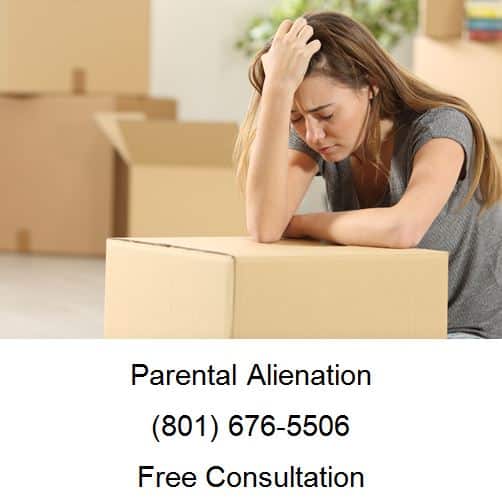
When going through a divorce, parents often hold the best interests of their children in the highest regard. However, it is possible that one spouse may begin to make negative, damaging comments about the other spouse to children. When used to influence the thoughts of children, these comments could go beyond being improper remarks and turn into parental alienation.
What is parental alienation in Utah?
Parental alienation syndrome takes place when a parent uses his or her actions to interfere and undermine a child’s relationship with their other parent. Psychologists have deemed parental alienation as a form of emotional abuse. Behaviors associated with parental alienation may include speaking negatively about the child’s parent, not allowing a child to visit with their parent, forbidding a child to discuss the parent at home and manipulating a situation to make the child believe the other parent is dangerous or uncaring.
This form of abuse may take place at any time, but often occurs during custody battles when a parent may strategically try to sway their child’s loyalties. Parental alienation may result in a child believing that one parent is the only person who can protect and provide for them, and that their relationship with this person will be jeopardized by contact with the other parent. Eventually, the parent’s behavior may cause the child to abandon their relationship with the other parent completely.
This form of emotional abuse has been reported to lead to increased pressure on children. Adults who were impacted by parental alienation as kids are reported be at risk for long-term effects such as depression, drug abuse, divorce and problems with self-esteem and trust.
When a couple is going through a divorce, it may not immediately be apparent to legal and mental health professionals that parental alienation is taking place. This is why it is essential to work with knowledgeable experts who can properly deconstruct a family’s situation.
Paying for Extracurricular Activities After Divorce
Child support is typically required after a divorce or when parents maintain separate households. However, paying for extracurricular activities, such as sports, dance or other hobbies, can be less clear.
Child support amounts are determined by the income of both parents and how much time the child spends with them, among other factors. And while parents are required to ensure that they provide for the necessities of life for their child, usually extracurricular activities are not specified in the divorce agreement and are considered entertainment expenses. Determining who should pay can become contentious if both parents don’t see eye-to-eye about the added expenses.
Often, the parent desiring the participation in the activity is the one who ends up paying for it. While they can ask for help from the other parent, typically there will be no requirement to come up with additional funds. However, parents are free to use established child support orders to pay for expenses for the child, which can include extra classes or costs for hobbies. Also, if an activity is medically necessary for a child (for example, equine therapy for a child with special needs) it may be included as part of court-ordered support.
If sufficient financial resources exist, a court may require a noncustodial parent to pay their share of enrichment activities. If a couple is negotiating a divorce outside of court they may be able to specify who will pay for which expenses. Activities like summer camp also sometimes serve as childcare (if the child is still of the age requiring such care) and are thus considered part of a child support obligation.
Parental Alienation Lawyer Free Consultation
If you have a question about divorce law or if you need to start or defend against a case involving Parental Alienation in Utah call Ascent Law at (801) 676-5506. We will help you.
8833 S. Redwood Road, Suite C
West Jordan, Utah
84088 United States
Telephone: (801) 676-5506
Recent Posts
Charitable Contributions for Taxes
Using Gifts to Reduce Estate Tax
What’s the Difference Between a Divorce Trial and a Hearing?

